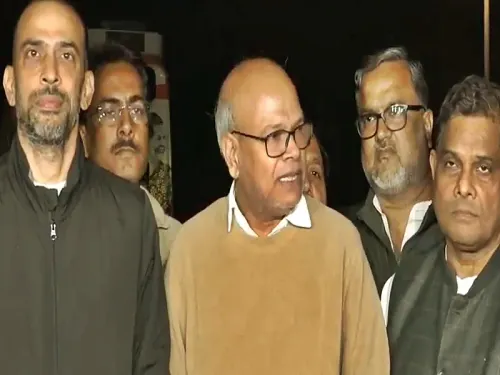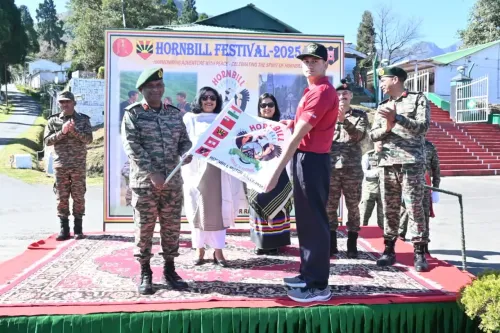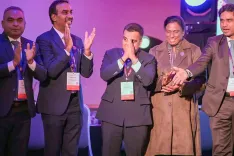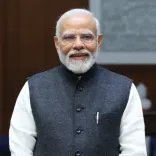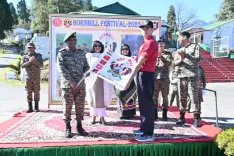January 19: A Day of Remembrance for Hindu Persecution in Kashmir
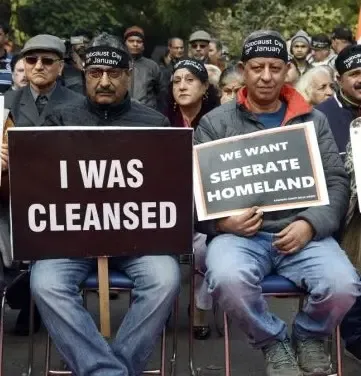
Synopsis
Key Takeaways
- January 19 is observed as 'Holocaust Remembrance Day/Exodus Day' by Kashmiri Pandits.
- Over 399 Kashmiri Hindus were estimated to have been killed from 1990 to 2011.
- The day symbolizes the failure of governance and the lack of support for minorities.
- Political leaders failed to protect the rights of Kashmiri Pandits during a crucial period.
- There has been no investigation into the mass exodus by any government.
New Delhi, Jan 19 (NationPress) Annually, the Kashmiri Pandit community recognizes January 19 as 'Holocaust Remembrance Day/Exodus Day' to grieve the loss of lives, homes, livelihoods, language, culture, Kashmir, and Kashmiriyat.
This day also serves as a reminder of the shortcomings of the administration, political figures, civil society, and the loss of humanity.
While not all members of the Kashmiri Hindu community left on January 19, many remained, hoping to avoid harm. However, atrocities persisted, including massacres, targeted killings, kidnappings, rapes, assaults, looting, arson, and harassment.
According to the estimates from a local group, Kashmir Pandit Sangharsh Samiti (KPSS), which conducted surveys in 2008 and 2009, 399 Kashmiri Hindus were murdered by insurgents from 1990 to 2011, with 75% of those deaths occurring in the first year of terrorism's rise.
An RTI request filed last year indicated that 89 Kashmiri Pandits had been killed in attacks since the beginning of militancy in 1990. These numbers are debated, as many Kashmiri Pandits faced challenges in filing FIRs and lacked police documentation.
On March 23, 2010, the then J&K Revenue Minister Raman Bhalla informed the Assembly in Jammu that 219 Pandits had been killed in Kashmir from 1989 to 2004.
Although these figures may be contested, the events of 35 years ago remain undeniable.
The predominantly Muslim population largely ignored the targeting of the minuscule Kashmiri Pandit community. As extremists celebrated in the streets, loudspeakers at mosques amplified hate-filled slogans, threatening to rape and kill the 'kafirs' if they did not depart from Kashmir. The choices given to Hindus were stark: 'Raliv, galiv, chaliv' (convert, die, flee).
No one intervened to stop the radicalized mobs that had taken control of the valley, nor was there anyone to halt the inflammatory rhetoric. Under the guise of 'Azadi' (freedom), a different agenda unfolded: the systematic erasure of Hindus to seize their properties and replace them with others. The so-called freedom movement aimed for the total Islamization of the valley to facilitate its merger with Islamic Pakistan.
The administration had effectively collapsed; the police became dysfunctional, with some even complicit with terrorists. The minority community had nowhere to turn. Pandit parents feared for their women and girls, as the chaos on the streets signified only violence. Numerous women were abducted and horrifically violated.
None of the leaders -- Farooq Abdullah, the late Mufti Mohammad Sayeed, Saifuddin Soz, Ghulam Nabi Azad, and others -- who professed to support secularism came to aid the minorities in the valley.
Farooq Abdullah served as Chief Minister of J&K from 1986-1990. Mufti Mohammad Sayeed was the Union Home Minister from 1989-1990. It was during their leadership that terrorism infiltrated and thrived in Kashmir.
The highest number of targeted killings of Kashmiri Pandits, Sikhs, and anyone perceived as 'pro-India', along with the brutal gang-rapes and murders of Pandit women, the vandalism of temples, kidnappings, and harassment of the valley's minorities, occurred while these leaders were in power.
Warnings were plastered on the doors and walls of Kashmiri Pandit residences, open threats appeared in local publications, and messages were sent to those targeted to either leave or face death.
No political leaders or members of the majority Muslim community, nor representatives of civil society, either in the former state or in New Delhi, stood up to halt the persecution.
January 19 also highlights the emptiness of the country's top constitutional institutions, which failed to acknowledge the atrocities and take action against those responsible for the persecution and exodus of their fellow citizens.
Three decades post-mass exodus, none of the successive governments at either the Centre or the state established a commission or formed a SIT to investigate the exodus.
January 19 serves as a day to reflect on the failures of Kashmiriyat and the shortcomings of the democratic framework – including the legislature, executive, and judiciary.
(Deepika Bhan can be contacted at deepika.b@ians.in)


